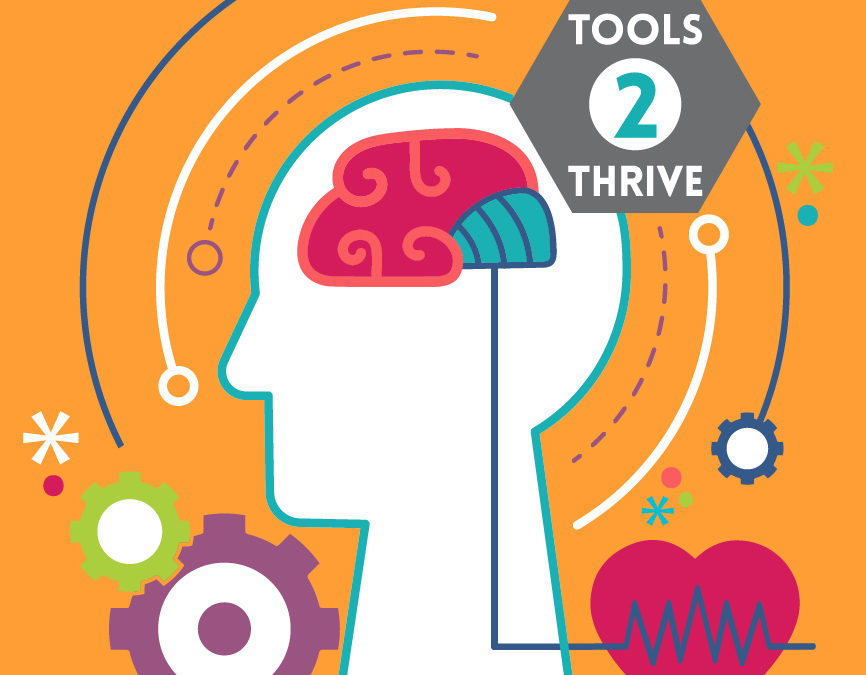May is Mental Heath Month. Since 1949 many mental health organizations have observed this month as a time to use media, local events and screenings to educate people about mental health. 1 in 5 people will experience mental illness in their lifetime so it is important for us all to be supportive of each other and those we love. This year’s theme is Tools 2 Thrive.
There are many interesting tools and links on the Mental Health America Website
This year, Jamie decided that I would be challenged with writing about Generalized Anxiety Disorder (GAD) because she likes to stretch me…and I have GAD…in fact at one time or another my many therapists have considered all, but 1 of the following types of anxiety disorders for me…So far they have decided I have 3 out of 5 of them…but we are going to focus on just one today…
Types of Anxiety Disorders
- Generalized Anxiety Disorder
- Obsessive-Compulsive Disorder
- Panic Disorder
- Post-Traumatic Stress Disorder
- Social Phobia (or Social Anxiety Disorder)
What is Generalized Anxiety Disorder?
It is normal to get anxious sometimes. Before a big test, getting on a plane for the first time or giving a speech are all reasons someone might feel anxious. For the normal person, these worrisome feelings go away when the reason for anxiety has subsided. For someone with Generalized Anxiety Disorder, their anxiety is bigger than that and it often doesn’t go away as quickly; in fact a person with GAD might not even need a reason to be anxious. A person with GAD may even find it hard to stay focused on daily tasks because their anxiety is out of control.
I have had Generalized Anxiety Disorder for most of my life. Many times I have not even realized I was feeling anxious because it is such a common experience for me.
GAD is also sometimes called Chronic Anxiety Neurosis. Neurosis is a word used to describe mental, emotional or physical reactions that are drastic and irrational; these behaviors are a person’s automatic and unconscious effort to manage deep anxiety. Neurotic thoughts and behaviors are so extreme that they interfere with a person’s personal, professional and romantic lives, even when the person is aware that their anxiety is unreasonable and unfounded.
Symptoms of Generalized Anxiety Disorder:
- Worry very much about everyday things
- Have trouble controlling their worries or feelings of nervousness
- Know that they worry much more than they should
- Feel restless and have trouble relaxing
- Have a hard time concentrating
- Be easily startled
- Have trouble falling asleep or staying asleep
- Feel easily tired or tired all the time
- Have headaches, muscle aches, stomach aches, or unexplained pains
- Have a hard time swallowing
- Tremble or twitch
- Be irritable or feel “on edge”
- Sweat a lot, feel light-headed or out of breath
- Have to go to the bathroom a lot
- Have rapid heartbeat, or feeling as though one’s heart is beating quickly, but pulse is normal
- Have neurological symptoms, such as numbness or tingling in different parts of the body
GAD develops slowly. It may first show up during childhood, but GAD can evolve all through middle age. Sometimes symptoms are pronounced and more irritating that others; other times they are mind or not noticeable. Symptoms often worsen during times of stress, conflict or new experiences. It is common to feel anxiety with other mental health conditions like depression or phobias, but these conditions usually involve one thing the person worries about when they are present, with GAD a person could worry about any number of things at once, and it doesn’t go away, and the person may not be able to identify the source of their worry.
It is normal for co-occuring conditions to be present with GAD…Like in my case where I also have OCD and PTSD…
What Causes GAD?
Anxiety runs in families. A person with GAD may have a history of anxiety within their family. Other causes or risk factors include:
- Recent or prolonged exposure to stressful situations, including personal or family illness
- Excessive use of caffeine or tobacco, which can make existing anxiety worse
- Childhood abuse or over-protection
- Women are twice as likely as men to have GAD
GAD Affects About 6.8 Million Americans…What to Do if You Think You Have it?
If you or someone you know, may have GAD, it is important for you to talk with your primary doctor about your symptoms. Your doctor will ask how long you have experienced your symptoms. They may suggest ways to relax or treat symptoms to see if you will find relief. Your doctor also may test you for diseases that anxiety are related to:
- Substance Addiction
- Gastroesophageal Reflux Disease (GERD)
- Thyroid Disorders
- Heart Disease
- Menopause
You may need to request a referral to see a therapist. During visits with a licensed therapist or psychiatrist, behaviors will be assessed to come to the diagnosis. GAD is treated through Cognitive Behavioral Therapy (sometimes also called Dialectical Behavioral Therapy) in order to learn different ways of thinking, behaving and reacting to situations that will help the person with GAD handle their mental health issue in a more productive way. Some people require medication.
I have tried many medications over the years. When I was in my twenties I had my first mental break and we tried Wellbutrin and Prozac. That didn’t go so well and I decided to just stick with prayer and quiet living. In 2014, I had a medical emergency, that seemed to have changed me for good. Since then I had made peace with the idea that I will need to take medication for probably the rest of my life. I have tried several medications without success but for the last few years I have had success with Fluvoxamine. About 3 weeks ago, we also added Buspirone. Finding the proper medications and amounts are not for the faint of heart but I am very lucky to have Karen by my side. She is a great help and the reason I finally agreed to take meds, because I realized without them I was very hard to live with.
Lifestyle Changes You Can Make
The choices we make in life often reflect on many parts of our life. There are several behaviors that we can adopt into our life that will help us live a more peaceful and stress free life:
- Getting regular exercise
- Eat a balanced, nutritious diet
- Create a sleep routine and stick to it
- Relax with yoga, meditation or prayer
- Avoid stimulants like coffee, diet pills or caffeine pills
- Talk with a close friend, spouse or relative about fears and worries
- Avoid alcohol (alcohol might make you feel good in the moment, but within a few hours after drinking it can make depression or irritability worse)
- Eliminate or restrict relationships that cause you stress
I think the most important thing I ever did to help myself was to come to the realization that I had a problem I could not face by myself. Naming the problem made it necessary for me to look for a solution. There are many things I have had to change in my life besides taking medications and seeing a therapist regularly. I have had to commit to regular exercise and healthy eating. I have had to cut toxic relationships out of my life which included family members that even though we love each other, we just don’t want the same thing in life. I have had to learn to take time for myself and advocate for myself. I have had to learn to set boundaries and keep them…these are just a few of the changes I have made that have brought more value and peace in my life.
Mental illness is real. It can be debilitating, but it can also make you stronger by showing you how strong you can be. Karen is my rock. She is not phased by episodes. She even does this for some of our clients. She can do that for you too.
Call or text 360-447-8061 for a free consultation
If you are needing prayer, send us an email and we will be glad to add you to our prayers. You don’t have to handle mental illness alone. You are not alone.
I hope this article answered questions you had and was easy to understand. If you would like us to write about a particular topic that you can’t find on this site, please send us an email on our Dear Jamie page and someone from Our Team will be glad to research and write about your topic.
Resources and Start Learning More:
- Generalized anxiety disorder by Mayo Clinic Staff
- Generalized Anxiety Disorder by Psychology Today Staff
- Generalized Anxiety Disorder by WebMD Staff
- Generalized anxiety disorder (GAD) – causes, symptoms & treatment by Osmosis on YouTube
- Generalized Anxiety Disorder: When Worry Gets Out of Control by National Institute of Mental Health Staff
- May is Mental Health Month: #4Mind4Body by Kristen Fuller, MD for Psychology Today
- May is Mental Health Month 2020: Tools 2 Thrive by Mental Health American Staff
- Mental Health Month by National Alliance on Mental Illness (NAMI) Staff
- What are the five major types of anxiety disorders? by U.S. Department of Health & Human Services Staff
- What is generalized anxiety disorder? by Elea Carey and medically reviewed by Timothy J. Legg, PhD, CRNP for Health Line
- What is Neurotic Behavior: by WebMD Staff
Related Articles
- Why it is Important to Have Good Posture
- The Pros and Pros of Workplace Wellness Plans
- Emotional Health is a Big Part of Wellness
- Learning About Cannabis for Pain
- What Women Need to Know After Cancer
I hope this article helps Fuel Your Wellness. Please leave your comments below.
 Summer D Clemenson co-owns Clemenson Enterprises and Wellness Works NW with her wife, Karen G Clemenson. Their personal motto is Creativity, Honesty & Positivity are a must! This mantra helps them stay community and wellness minded in all they do. Summer is an Independent Wellness Advocate at dōTERRA. Summer also writes poetry and inspirational blogs @ ClemensonEnterprises.com. Her crochet art can be viewed and purchased @ KnottyWares.com & she loves special orders!
Summer D Clemenson co-owns Clemenson Enterprises and Wellness Works NW with her wife, Karen G Clemenson. Their personal motto is Creativity, Honesty & Positivity are a must! This mantra helps them stay community and wellness minded in all they do. Summer is an Independent Wellness Advocate at dōTERRA. Summer also writes poetry and inspirational blogs @ ClemensonEnterprises.com. Her crochet art can be viewed and purchased @ KnottyWares.com & she loves special orders!













